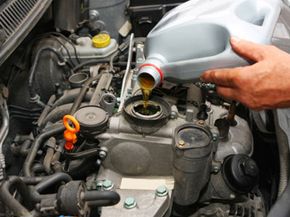Auto manufacturers such as BMW, Mercedes, Audi and Volkswagen all market lifetime transmission fluid and state the original fluid will last the life of the transmission. Take a 2009 BMW, for example. Pick your model, it makes no difference. All new BMWs come with a 4-year/50,000 mile (80,467-kilometer) warranty which includes oil changes. But when you look at the service schedule, you don't see a transmission fluid change anywhere.
Of course, just like the rest of us, owners of these high-end vehicles must regularly change the engine oil and check the various fluid levels; however, they don't need to change transmission fluid. It seems like the next logical step would be lifetime engine oil, right? Wrong. Engine oil is a completely different ballgame.
Advertisement
Unlike transmission fluid, engine oil serves three main purposes. Most people probably already know oil lubricates the engine's internal components such as the bearings, crankshaft, camshafts and lifters. Perhaps less known are the remaining primary functions -- cooling and cleaning. Oil cools internal engine components and keeps engine temperatures under control while detergents and additives remove carbon build up and dirt that has found its way into the crankcase through the combustion chamber by way of the air intake. Sure, transmission fluid lubricates and cools, but your car or truck's transmission is a completely sealed system. It doesn't have to cope with the outside elements that come in through the intake and combustion chamber. In addition, transmissions do not generate the same type of heat.
Let's take a closer look into oil and why developing lifetime liquid gold may be nothing more than a pipe dream.
Advertisement


